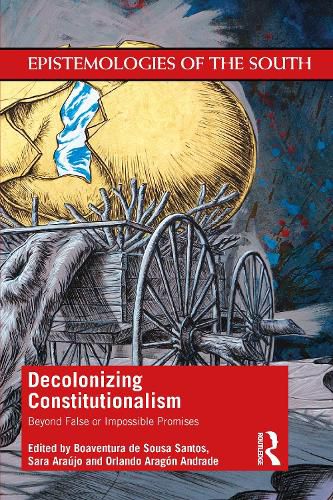Readings Newsletter
Become a Readings Member to make your shopping experience even easier.
Sign in or sign up for free!
You’re not far away from qualifying for FREE standard shipping within Australia
You’ve qualified for FREE standard shipping within Australia
The cart is loading…






The modern state, law, and constitution result from a legal canon that (re)produces the abyssal lines dividing the world that is validated from the world whose humanity and epistemological validity are denied. This book aims to contribute to a post-abyssal reflection on law and constitutionalism by considering the structural axes of power that are constitutive of modern law "capitalism, colonialism, and heteropatriarchy" alongside the legal plurality of the world. Is it possible to decolonize, decommodify, and depatriarchalize the constitution? The authors speak from multiple geographies, raise different questions, resort to differentiated theoretical approaches, and reveal varying levels of optimism about the possibilities of transforming constitutions. The readers are confronted with critical perspectives on the Eurocentric legal canon, as well as with the recognition of anti-capitalist, anti-colonial, and anti-patriarchal legal experiences. The horizon of this publication is the expansion of the possibilities of legal and political imagination.
$9.00 standard shipping within Australia
FREE standard shipping within Australia for orders over $100.00
Express & International shipping calculated at checkout
The modern state, law, and constitution result from a legal canon that (re)produces the abyssal lines dividing the world that is validated from the world whose humanity and epistemological validity are denied. This book aims to contribute to a post-abyssal reflection on law and constitutionalism by considering the structural axes of power that are constitutive of modern law "capitalism, colonialism, and heteropatriarchy" alongside the legal plurality of the world. Is it possible to decolonize, decommodify, and depatriarchalize the constitution? The authors speak from multiple geographies, raise different questions, resort to differentiated theoretical approaches, and reveal varying levels of optimism about the possibilities of transforming constitutions. The readers are confronted with critical perspectives on the Eurocentric legal canon, as well as with the recognition of anti-capitalist, anti-colonial, and anti-patriarchal legal experiences. The horizon of this publication is the expansion of the possibilities of legal and political imagination.